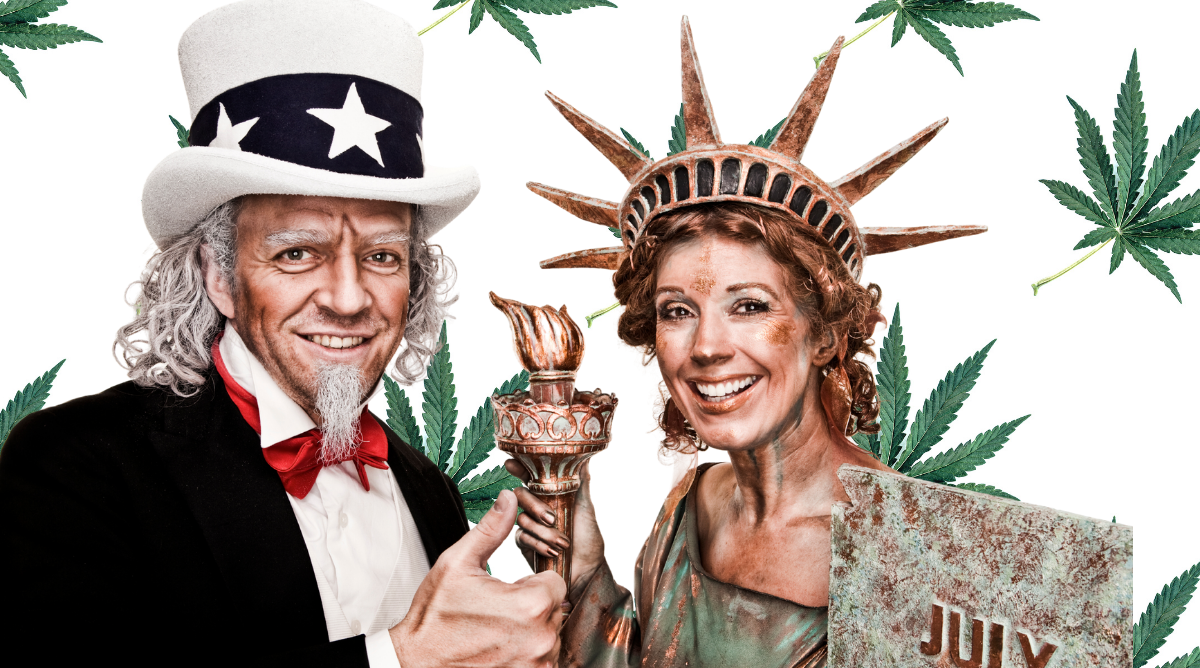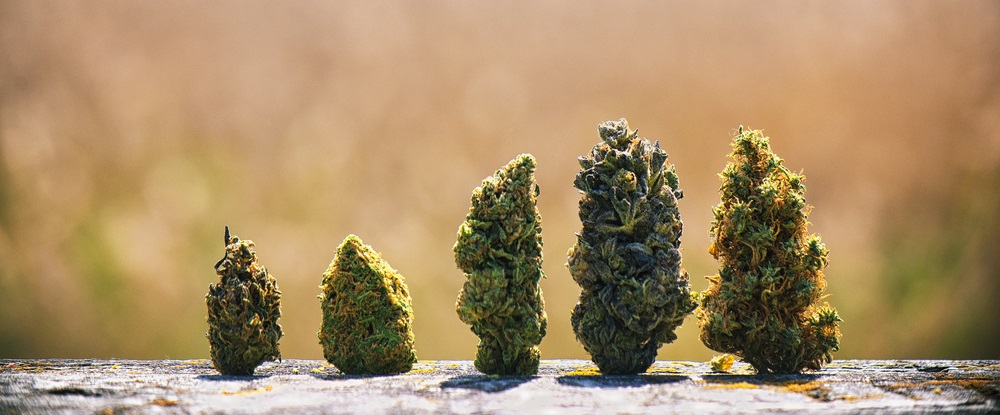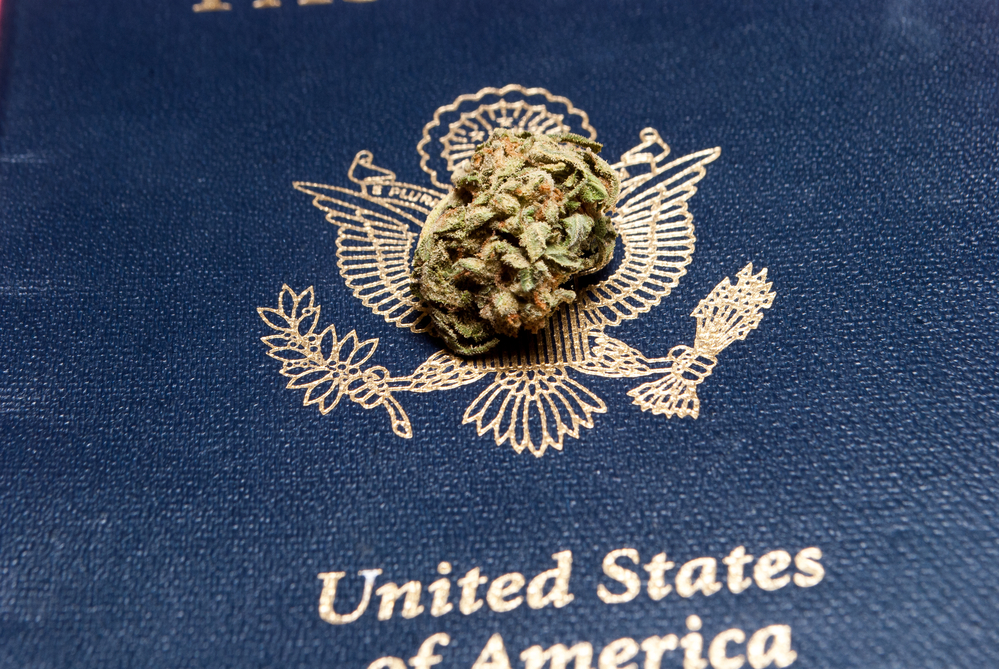
When the House Majority Leader states that the feds will legalize cannabis and it “will happen,” you have to feel more than a little encouraged. Since the demonization of cannabis from the early 1930s in the United States, the road to legalization has been long.
Not only has the fight to legalize cannabis been difficult, but cannabis prohibition has caused a lot of casualties. We only need to look at the skyrocketing arrest rates for personal use amounts of cannabis to scratch the surface. But the impact of the ‘war on drugs’ against marijuana has also caused generational damage, contributing to poverty because of social and legal stigma.
We are close enough now to federal legalization to be optimistic. And to think about what would happen if the federal government legalized cannabis. Over ninety (90) years after, it made a medicinal plant into “the Devil’s lettuce” and propagandized “Reefer Madness.”
Federal legalization would have a sweeping effect on social justice and equity, with mass expungement of low-level misdemeanor or felony offenses involving personal use. Commerce would explode and open up national distribution of raw cannabis and processed marijuana products. It would eliminate state monopolies while broadening the reach of MSOs (multistate operators).
But that is just the start of some really good things happening in the United States, after the federal legalization of cannabis.

The MORE Act has pages of reparation to communities that have been disproportionately impacted by cannabis prohibition. And “the war on drugs.” Any American who has been charged and penalized for using, possessing, or growing a small amount for personal use at home deserves a clean slate.
You’ve probably heard that the arrest rate for cannabis is higher among persons of color (POCs) in the United States. Historically, it hasn’t just been a little bit higher. Black Americans have been arrested and sentenced at four times (4x) the rate of Caucasian Americans.
The injustice of the arrest bias when it comes to cannabis charges has had a reverberating impact. Grants and scholarships are often not awarded to individuals who have a prior criminal charge. That means missed educational and job training opportunities. Even finding a job is harder when employers require a background check.
Background checks don’t differentiate a ‘personal use’ charge like distribution or trafficking or violent crimes. And they don’t care if you were using cannabis for a medical reason, without a medical card, as many Americans have (and still do in non-legalized states).
If the MORE Act is ratified through the U.S. Senate, mass expungement is the first and most crucial piece of that legislation. There is a path to erase past cannabis charges and records. People serving sentences for charges can apply for release. And Americans currently facing misdemeanor or felony cannabis charges could see them dismissed.
Mass expungement will allow people who were busted for having small amounts of cannabis to have a fresh start. However, it will not help anyone who was charged with large quantities of cannabis for manufacturing or distribution. And if the cannabis charge was linked to a violent crime or weapons charge, it will also not qualify for expungement under the MORE Act.
In states where cannabis is barely legalized or not legalized for patients, the arrest rates are still astronomical. It is estimated that over 600,000 Americans per year are arrested on cannabis-related charges. That is according to an interview on PAPER® with Erik Altieri, the Executive Director of the National Organization for the Reform of Marijuana Laws (NORML).
In 2019, the Bureau of Justice Statistics estimated that the United States spends more than $80 billion per year for incarceration costs. And that there are between 2.3 to 2.5 million Americans behind bars annually.
Families of people incarcerated also bear financial costs from providing commissary to their loved one, or the administrative expenses of emailing a prisoner to sending care packages, and fees for telephone calls. Not only has a family lost an income-earning member but sustaining someone in prison creates a big financial burden for families. And that creates a cyclical and often generational poverty rate.

The TSA in New York already announced that it will not be seizing nor taking law enforcement action against any airport traveler that has under three ounces of cannabis in their luggage. Nothing says progressive change more than the freedom to walk through airport security with your stash, right?
Federal legalization would make it possible for patients to travel with their own products. This may seem like a small thing, but it’s a big deal for people who use medicinal marijuana. That means they won’t have to seek out a dispensary on vacation. They will have the products they need, know, and trust them to help with symptom relief.
That also means that cannabis possession will not result in a felony offense if you are on federal property. That includes state parks. For health reasons, smoking indoors, near schools or certain establishments like restaurants will be prohibited (like tobacco smoking). But long gone will be the days when you have to hide your weed in the spare tire compartment when you hit the road.
Some states have many dispensaries available for patients. But in other states, licensing of dispensaries has been very restricted. That has meant many people have to travel a long distance to get the cannabis products they need.
States that realize this problem have, in some cases, legalized home grow. But if cannabis is federally legalized, anyone will be able to grow cannabis plants at home. However, growing cannabis is not easy for everyone. Dispensaries may see a minimal impact on demand after federal legalization, as some people will prefer the convenience of buying high-quality marijuana from an experienced grower.

Multi-state operators (MSOs) have invested significantly to develop the infrastructure to provide cannabis within certain jurisdictions. The size and investment power of MSO’s, and business licensing restrictions from states, has made it harder for SMBs to compete. Or even become established in regions that are serviced by larger dispensary chains.
In some states, vertical integration is mandatory. That means dispensaries can only sell products that they cultivate and process themselves. And the medical dispensaries are also required to submit to third-party safety and quality control testing for compliance with state laws.
If the government chooses to legalize cannabis, it also means national retail. If cannabis is legalized, that also opens the door to e-commerce. Small growers could level the playing field, allowing for more entrepreneurs to enter the cannabis marketplace.
In some regions, cannabis prices would not change much. But in other areas of the United States, mainly where cannabis prices are already high, that could lower costs for consumers and patients.
An analysis by the Tax Foundation put a modest number on the amount of revenue from cannabis sales. The U.S. federal government could see more than $500 million annually in tax revenues if it moves to legalize cannabis. By comparison, tax revenues from alcohol sales gross $10 billion. The federal government also collects an estimated $14 billion per year from tobacco product sales.
But that estimate seems a little low. Particularly when you consider tax rates built into every level of the cannabis supply chain in the MORE Act, the feds would also see revenue from business licenses and bulk production from cultivators by the pound.
An injection of funds right now is very enticing for the federal government. One of many reasons to legalize cannabis. The cost of managing the pandemic has hit the U.S. economy hard and impacts supply chains and trade that have caused both economic contraction and inflation. Legal weed could be the bailout the feds need to get things back on track, mainly if legal sales are ‘higher’ than expected.

The cannabis tourism industries in states with legalized recreational cannabis have been slow to grow for one main reason; federal prohibition. Everything from fire and safety laws to liability insurance problems has made it hard to grow the American cannabis tourism industry.
But that could change quickly with federal legalization. While travel restrictions are still in place, federal legalization of cannabis would allow resorts to establish and expand. And get ready for the influx of travelers the United States will undoubtedly see when the COVID-19 health emergency is over.
In some states that have legalized adult-use (recreational) cannabis, consumers can pay as much as 29% tax. That includes the state excise tax, regular state retail tax, and another local community tax on cannabis products. It adds up.
Patients with a medical card and registered in a state medical cannabis program pay fewer taxes in most cases. And some states have a plan to fund the administrative costs of cannabis regulation with tax funds from recreational sales. That means patients may pay no tax on medicinal cannabis products in the future. That is already the case in New Jersey, which will phase out marijuana taxes for patients by 2022.
The legislation to legalize cannabis outlined MORE Act proposes a 9% federal tax on all retail sales. There are also other levels of taxes that are charged to businesses for licenses and based on the quantity or volume of cannabis produced or processed annually.
States will face a unique challenge. They could maintain their current rate of taxation and expect consumers to pay an additional 9% retail tax. That could make legal weed more expensive than sourcing it from illegal channels. One of the benefits of keeping cannabis affordable is that it maintains legal sales and squeezes out black market sources.
States that do not adjust their tax rates could find sales of medical and adult-use cannabis falling significantly. And criminal distribution of cannabis may increase instead. There is a cost threshold that consumers are sensitive to before they seek out unlicensed providers.
States that have lower cannabis retail taxes right now may not need to adjust their tax structure at all after the feds legalize cannabis. But the states that have premium-priced cannabis? They may have to pivot quickly to prevent eroding legal sales at licensed dispensaries.
No Information on MarijuanaDoctors.Com should be used to diagnose, treat, prevent or cure any disease or condition. You can view our Full Disclaimer here.